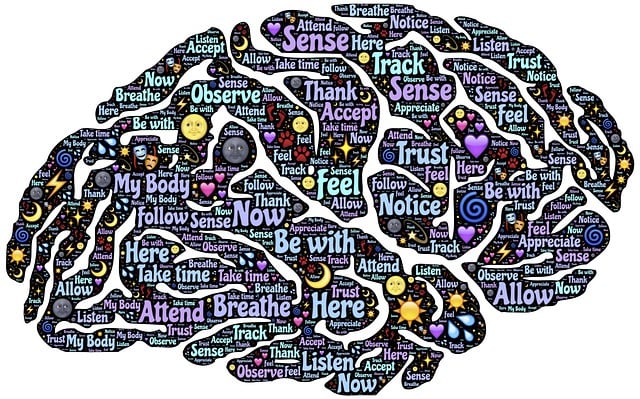Understanding Mental Health Data is a meticulous process involving identification of reliable sources, careful preparation of data, and application of techniques like thematic analysis, predictive modeling, NLP, and sentiment analysis for analysis. Westminster Anger Management Therapy leverages these methods to personalize treatments, observe improvements in anger management and emotional regulation, and guide evidence-based practices for well-being on a larger scale. Their approach integrates compassion cultivation, burnout prevention, and trauma support services for enhanced patient care.
Mental health data analysis is a powerful tool for understanding and improving individual and community well-being. This article explores essential aspects of this process, starting with understanding mental health data through collection and preparation methods. We then delve into effective analysis techniques tailored to sensitive mental health datasets. The final section presents a case study on the Westminster Anger Management Therapy program, demonstrating how insights from data interpretation can be applied in practice to enhance therapeutic outcomes.
- Understanding Mental Health Data: Collection and Preparation
- Techniques for Effective Analysis of Mental Health Datasets
- Interpreting Results and Applying Insights in Practice: Westminster Anger Management Therapy Case Study
Understanding Mental Health Data: Collection and Preparation

Understanding Mental Health Data involves a meticulous process of collection and preparation. The journey begins with identifying reliable sources for data acquisition, which can include surveys, clinical records, and self-reported questionnaires. These tools are designed to capture insights into various aspects of mental health, such as stress levels, anxiety, depression, and anger management—areas where Westminster Anger Management Therapy offers expert guidance. For instance, structured interviews or standardized assessment scales can provide a consistent framework for data collection, ensuring comparability across different studies or individuals.
Once collected, raw data requires careful preparation to ensure its quality and suitability for analysis. This step involves cleaning the data by handling missing values, outliers, and errors, as well as transforming it into a structured format. For example, quantitative data might be organized in spreadsheets while qualitative insights from open-ended questions could be coded and categorized using techniques like thematic analysis. This preparatory phase is crucial to ensure that the subsequent analysis yields meaningful interpretations relevant to both research and practical applications, including stress management and self-care practices, as advocated by mental wellness journaling exercises guidance.
Techniques for Effective Analysis of Mental Health Datasets

The effective analysis of mental health datasets requires a combination of statistical prowess and nuanced understanding of human behavior. Techniques such as predictive modeling, natural language processing (NLP), and sentiment analysis are instrumental in uncovering patterns and insights from textual data, including therapeutic sessions and client feedback. For instance, applying NLP to evaluate the language and tone used by clients during Westminster Anger Management Therapy sessions can reveal emotional trends and areas for improvement, guiding therapists in tailoring their approaches.
Public Awareness Campaigns Development, Conflict Resolution Techniques, and Inner Strength Development are key aspects that can be indirectly assessed through data analysis. By analyzing responses to questionnaires or survey data, researchers and practitioners can gauge public perceptions about mental health, the effectiveness of conflict resolution strategies employed, and individuals’ perceived levels of inner strength. This holistic view allows for a more comprehensive understanding of mental health dynamics within communities, fostering evidence-based practices that promote well-being on a larger scale.
Interpreting Results and Applying Insights in Practice: Westminster Anger Management Therapy Case Study

When analyzing mental health data, particularly from programs like Westminster Anger Management Therapy, interpreting results accurately is paramount. This involves more than just identifying trends and patterns; it requires a nuanced understanding of the context in which the data was collected and the populations represented. For instance, at Westminster, data analysis has shown that individuals participating in compassion cultivation practices exhibit reduced anger and improved emotional regulation over time. This insight can then be applied directly to practice, guiding therapists in tailoring interventions for better patient outcomes.
By integrating data-driven insights, Westminster Anger Management Therapy can enhance its existing Compassion Cultivation Practices, complementing them with evidence-based strategies for burnout prevention among healthcare providers. Additionally, the data highlights the need for robust Trauma Support Services, as many clients present with complex histories that demand specialized care. This collaborative approach not only improves patient care but also ensures therapists are equipped to navigate the challenges faced by their patients, fostering a more supportive and effective therapeutic environment.
Mental health data analysis is a powerful tool that can significantly impact treatment strategies, as demonstrated by the Westminster Anger Management Therapy case study. By effectively interpreting collected data, professionals can gain valuable insights into patient outcomes and tailor interventions accordingly. This structured approach ensures that mental health services are not only evidence-based but also highly effective in addressing various psychological challenges. Through continued research and analysis, we can enhance our understanding of mental health, ultimately improving patient care and well-being.














